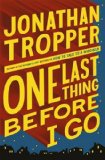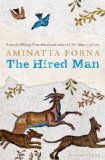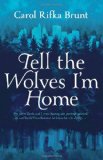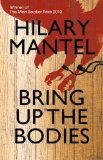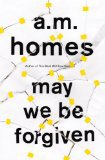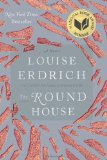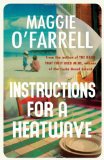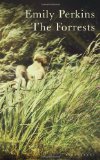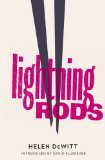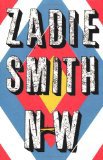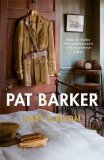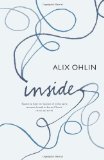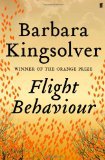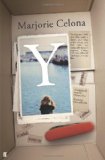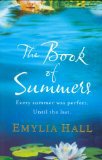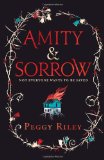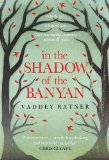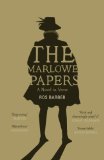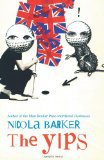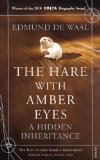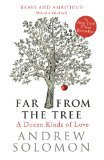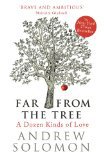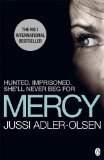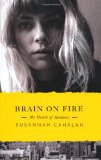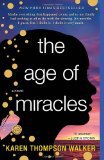Five words from the blurb: mistakes, divorced, refuse, operation, relationships
Jonathan Tropper is one of those authors that I’ve always wanted to try, but for some reason he never made it to the top of my TBR pile. When Sandy raved about the audio version of his latest book I added it straight to my wishlist. Since the book wasn’t published in the UK at the time she kindly offered to send her copy across to me. I’m so pleased that she did as this is a beautifully written book that works very well on audio.
One Last Thing Before I Go centres on Silver, a dysfunctional middle-aged man who is told that he will die unless he has surgery on his heart. Silver decides not to have the operation and is surprised when his ex-wife, daughter, and everyone else, try to persuade him that his life is worth living.
I have to admit that I initially struggled with this book. The first disc (of seven) bored me. I had no interest in this former rock star, his divorce, or his grumpy outlook on life.
Silver is forty-four years old, if you can believe it, out of shape, and depressed—although he doesn’t know if you call it depression when you have good reason to be; maybe then you’re simply sad, or lonely, or just painfully aware, on a daily basis, of all the things you can never get back.*
Then, part way into the second disc, Silver had his medical emergency and I was instantly engaged. The tone of the book changed as Silver began to think about his fate and I almost began to like him.
Many readers rave about the humour in this book, but I’m afraid it never made me laugh. The jokes were so dry that I barely registered their presence and I suspect that a lot of them went over my head as the Jewish culture is unfamiliar to me. Despite this problem I was impressed by the way Tropper made me sympathise with a man I’d never normally be interested in. His observations of a dysfunctional family felt realistic and there were many pieces of wisdom sprinkled through the text.
I initially thought the narrator was dry and boring, but as the book progressed I realised he was the perfect choice. He sounded exactly as I imagined Silver to be and his lack of enthusiasm reflected that of the character. By the end I was very impressed with everything he’d done.
One Last Thing Before I Go is one of those rare books that enables you empathise with characters that are initially repulsive. Recommended to those who like darker insights into dysfunctional families.

.
Have you read this book?
Which of Jonathan Tropper’s books should I read next?
* Quote taken from Goodreads, as it is difficult to get quotes from audio books.
